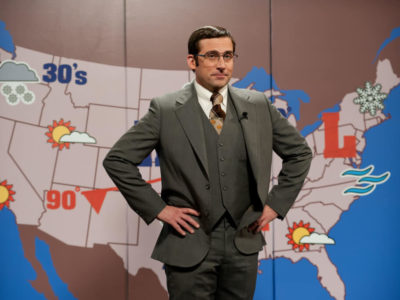The meteorology major looks sunny with a high chance of exciting job prospects. Always had a passion for the science of weather? Do you find yourself interested in learning why we experience different temperatures and how the seasons change? Then it sounds like you would be a great fit for a career in Meteorology. More than just reporting the weather on TV, this field actually requires a lot of behind the scenes work and research in your undergrad years.
Read on to find out if the meteorology major would guarantee clear skies for your future.

What You’ll Be Doing
This major is all about science…and not just any science. You will have to work your butt off in tough courses, some of which include mathematics, chemistry and physics (yikes). In other words you really have to feel passionate about understanding how the atmosphere and oceans work rather than just finding out that it is 75 degrees outside. You will learn about understanding why or how the weather works the way it does. “Meteorology and atmospheric science are arguably one of the first big data sciences, as we routinely analyze observations taken from across the globe and from satellites circling the earth,” Penn State professor David J. Stensrud said.
The Classes You’ll Take
Mathematics, chemistry, and physics may not sound interesting but how does Climatology or Understanding Weather Forecasting sound? In this class students gain an understanding of physical aspects of Earth’s climate system and the factors that influence climate change. Your first year you will most likely take Intro to Meteorology to learn the basics of our changing atmosphere. Most of your courses will be different atmospheric science level classes. “Our students must have a strong foundation in mathematics, physics, and computational science, which are then applied to understand weather and climate,” Stensrud said.
Internships For This Major
Meteorologists end up working for large companies, as many internships for meteorology consist of working at news stations. You can expect to work for huge companies such as CNN, AccuWeather or even NBC. Another opportunity would be working with the aerospace companies such as Boeing or even airlines.
Career Opportunities
“The career opportunities in meteorology and atmospheric science include weather forecasting, research, broadcast meteorology, STEM education, applications of weather and climate information to risk analysis and decision making, environmental applications such as air and water quality, and numerous entrepreneurial applications of weather and climate information to solve problems,” Stensrud said.
These pros analyze weather conditions and issues forecasters or alerts the public of severe weather for their area. This is basically what you see on your local TV news, the weatherman.
This kind of researcher studies specific areas of weather like severe weather or climate change. They can develop tools like radar or weather models. In other words you would be researching more in depth and helping other meteorologists.
3. Teaching
Someone has got to do the teaching for future meteorologists, so this one is self explanatory.
Airlines need meteorologists to to help pilots know what the weather will be like when they take-off, land and in between.
5. Atmospheric and Space Scientific Career
Investigate atmospheric phenomena and interpret meteorological data, gathered by surface and air stations, satellite and radar to prepare reports.
Reviews
“Our coursework is focused upon learning how the atmosphere works from the smallest wind gust to climate change, and how it can be understood and predicted using applied mathematics and computational tools. We also work hard to make sure our students can communicate information effectively,” Meteorology professor David J. Stensrud Penn State said.
“It’s a lot of hard work that goes into this field…you have to be passionate about it and have a love for science,” Rutgers alumni Ashley Robinson said.
“It goes beyond just standing in front of a television and reporting on the weather, there is a lot of behind the scene research that goes on that people don’t realize,” Millersville alumni Michael Green said.



















